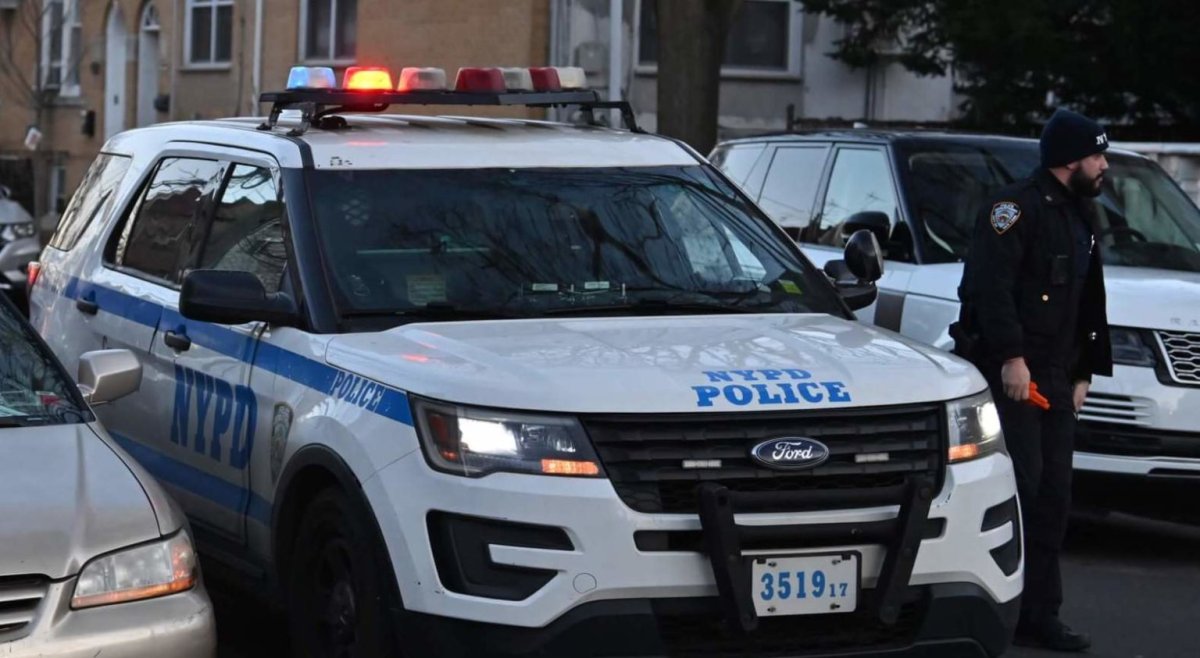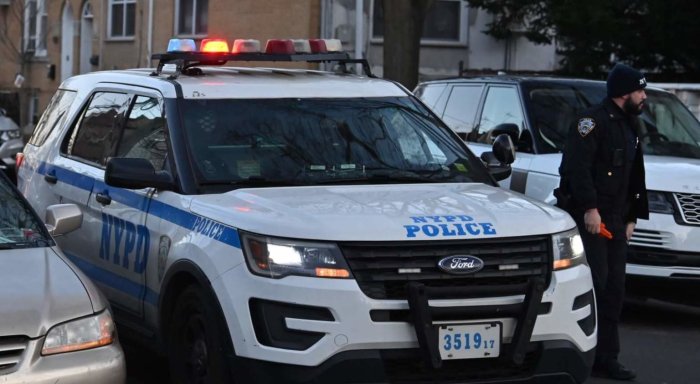New York City comedian Pete Holmes says his book "Comedy Sex God" is almost like the fourth season of his HBO comedy fans never got to see. And, yes, he knows that’s a pretty good selling tactic.
"I’m honestly not just saying that for marketing!" Holmes insists by phone while simultaneously succeeding at keeping his 7-month-old child, and his dog, content.
The comedian, 40, is used to getting personal. He became somewhat of an over-sharer thanks to his popular podcast "You Made It Weird," late-night show "The Pete Holmes Show," and role in "Crashing," the comedy about his own life.
But books are different.

Sitting down to write his memoir — while also filming "Crashing" — he knew his words wouldn’t just be consumed and eventually forgotten by stand-up fans surpassing the two-drink club minimum. Books are concrete.
"My editor asked me a lot, ‘are you sure you want to put this in writing?’ " Holmes says. "One of the big points in the book is that all of the things that might be traditionally viewed as failures are the most important things that could have happened."
The book, out Tuesday, covers Holmes’ upbringing in a religious household in Massachusetts, his time in a Christian college, his first marriage, and divorce, career, failures, successes and more.
And, in case you were wondering, the book covers comedy, sex and God, so, Holmes wouldn’t exactly call himself a "comedy sex God," whatever that may be.
"Most of the sex in this book is with myself, so, there’s no gloating," he jokes.
Below, the comedian/writer tells us what to expect from his new memoir.
We cover a lot of your life in this book, but we don’t get into the cancellation. It does, as you mention, cover past "failures" and how you’ve dealt with them. Can this give us a glimpse into how you’re dealing now?
Yes, I mean, the way we deal with change is the way we deal with change, right? So, I hope that it wouldn’t be a mystery if you read this book to know my perspective on "Crashing" going away because it’s just the story is so much about learning to have a world view that includes suffering and loss and change. That was the big reason I lost my faith in the first place, and it’s kind of silly when I look back on it now but understandably. It was when my wife left me. It didn’t make sense. I felt like I was on God’s team. I was one of his best employees, or whatever you want to say. And then this great suffering came and shattered my world view. The book is really not just about a deconstruction, which I don’t think it’s that interesting, about reconstructing a new world view that includes change and suffering.
We explore your journey with religion a lot. It seems like the more you tried to move away from it, the more it became a part of your story. How has it continued to manifest itself in different points of your life?
I like that point you made. There are parts of the book where it’s embarrassing how the question of the divine would be reintroduced to me. It could be a bad movie, or taking drugs … I’m so sorry, I’m just handing off the baby to the sitter …
Oh, that’s OK.
I’m back and the dog didn’t bark once. That’s proof of God right there.
God himself, keeping the dog quiet.
That would have been my own world view. Something good would go my way and it would be the divine … In the book I’m sharing the message and teaching and experience that really helps me connect to something very vital and electric, but is here and now. If you connect with it as an atheist, or a Hindu, or Christian, it doesn’t matter.
You dedicate a whole chapter to finally getting to a place where you thought you had everything you wanted — peace with religion, romance, a successful show — and falling into a dark period while filming "Crashing." How did this turn into a personal struggle for you?
I’m very, very fortunate to have had that experience firsthand. Jim Carrey has this great quote: "I wish everybody could have their dreams come true so they could realize it’s not the answer." It’s certainly an answer to how to feel artistically fulfilled. I want to be clear there’s a lot of gratitude there and a lot of joy in making the show, but the more I bought into the story that I was a TV star and I was special and I deserve two desserts or whatever, it left me with a malaise.
It wasn’t a depression, traditionally speaking. It wasn’t as simple as feeling down in the dumps. It’s the American way to say it doesn’t make you happy to have all your dreams come true. Here I am, another person saying in my experience when I should have been at the pinnacle, I had a graceful realization that no matter what you’re doing there’s still something fundamentally going on here and now that is aching to connect with you and inviting you to put down the baggage of your story or your false self.
And you found a way to peace through meditation this time, not exactly religion, right?
The more that I learned through meditation, psychedelics or contemplation how to identify the part of you that is timeless and preserving your story, that’s where peace came. It wasn’t about feeling a little bit of joy at the end of a long day and you’re sitting in your recliner watching Netflix. That’s not actually peace. That’s a temporary feeling of your basic needs being met.
That’s an interesting way to approach it.
There is a deeper joy. There’s deeper compassion and things that exist in your basic awareness. So, there I was in season 2 of "Crashing," meeting all of my needs but because I had tasted some of what we can call living spirit, I knew there was a big thing missing and it was learning to identify with consciousness itself through meditation.
If you go: Pete Holmes will appear in conversation at The William Vale in Brooklyn at 7:30 p.m. on Wednesday, an event copresented by WORD bookstores. 111 North 12th St., Williamsburg. wordbookstores.com. Sold out.
































